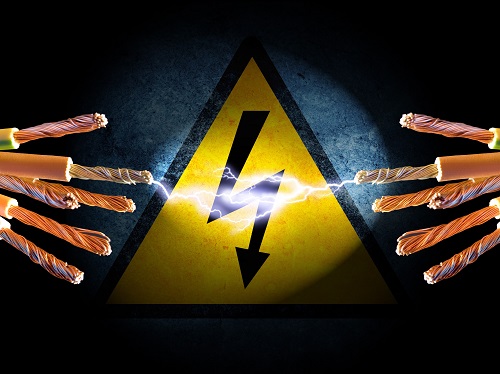- Empty cart.
- Continue Shopping
How to Protect Yourself from Electrical Shocks

Electricity is an essential part of modern life, powering our homes, workplaces, and technological devices. However, it can also pose serious risks if not handled properly. Electrical shocks can range from mild discomfort to life-threatening situations. We will explore effective strategies and precautions to safeguard yourself from electrical hazards.
Understanding Electrical Shocks
Before we delve into prevention, it’s crucial to understand what causes electrical shocks. These occur when a current passes through the human body, disrupting the body’s natural electrical signals. The severity of a shock depends on factors such as the voltage, current, and duration of contact.
Proper Electrical Installations
The first line of defense against electrical shocks is ensuring that your electrical installations are up to code. Faulty wiring, overloaded circuits, and substandard components can increase the risk of shocks. Hiring a licensed electrician to inspect and maintain your electrical system is a proactive step towards safety.
Ground Fault Circuit Interrupters (GFCIs)
GFCIs are specialized outlets designed to protect against electric shock. They monitor the current flow in a circuit and trip the circuit if they detect a deviation, preventing potential harm. Install GFCIs in areas prone to moisture, such as kitchens, bathrooms, and outdoor outlets, to significantly reduce the risk of electrical accidents.
Proper Outlet Usage
Using outlets responsibly is key to preventing electrical shocks. Avoid overloading outlets by plugging in too many devices or using multi-outlet adapters excessively. If you find yourself frequently relying on these, consider having additional outlets installed by a professional.
Insulation and Grounding
Insulation serves as a barrier between live electrical components and the surrounding environment. Ensure that all wires and cables are properly insulated to prevent accidental contact. Additionally, grounding provides an alternative path for electrical currents to dissipate harmlessly into the earth. Well-grounded systems significantly reduce the risk of shocks.
Avoiding Water and Electricity
Water is an excellent conductor of electricity and should never be mixed with electrical appliances or outlets. Keep electronics away from sinks, pools, and wet floors. Furthermore, always dry your hands before handling electrical devices to minimize the risk of conductivity.
Proper Handling of Electrical Tools
When working with electrical tools, follow safety protocols diligently. Inspect tools for frayed cords or exposed wires before use. Never yank cords from outlets, and ensure that tools are turned off and unplugged when not in use. Investing in high-quality, insulated tools can also provide an extra layer of protection.
Childproofing Electrical Outlets
Young children are naturally curious, which can lead to them exploring electrical outlets. Use childproof outlet covers to prevent accidental contact with live components. Additionally, educate children about the dangers of electricity and the importance of not playing with electrical outlets.
Regular Maintenance and Inspection
Routine maintenance and inspection of your electrical system are essential for long-term safety. Look for signs of wear and tear, such as frayed wires, discolored outlets, or flickering lights. Promptly address any issues by consulting a qualified electrician.
Education and Awareness
Knowledge is a powerful tool in preventing electrical shocks. Educate yourself and your family about the basics of electrical safety. Teach them how to recognize potential hazards and what steps to take in case of an emergency. A well-informed household is better equipped to handle electrical risks.
In conclusion, protecting yourself from electrical shocks is a responsibility that should not be taken lightly. By understanding the causes of electrical shocks and implementing the aforementioned precautions, you can create a safer environment for yourself and your loved ones. Remember, electrical safety is a collective effort that starts with awareness and ends with proactive measures. Prioritize your well-being by prioritizing electrical safety.








